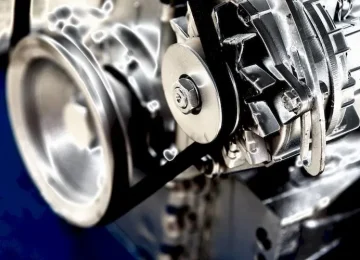As concerns over climate change and environmental sustainability continue to grow, the auto industry is under increasing pressure to develop sustainable mobility solutions for the future. Many manufacturers are investing heavily in research and development to create new technologies that will reduce the environmental impact of vehicles and enable them to operate on renewable energy sources.

One of the most promising technologies is electric vehicles (EVs), which run on battery power rather than gasoline or diesel fuel. EVs produce zero emissions while driving, which makes them an attractive option for people who are looking to reduce their carbon footprint. In addition, many countries and cities are now offering incentives for people to buy electric cars, such as tax credits, rebates, and free charging stations.
However, there are still some challenges associated with EVs that need to be addressed. One of the main challenges is the limited range of the battery, which can make longer trips difficult. Charging infrastructure is also still developing, so it can be hard to find charging stations in some areas. Finally, the cost of EVs is still higher than traditional cars, although this is expected to change as the technology becomes more widespread.
Another sustainable mobility solution is hydrogen fuel cell vehicles (FCVs). FCVs use hydrogen gas to generate electricity, which powers an electric motor. The only byproduct of this process is water, which makes FCVs a zero-emissions alternative to gasoline-powered cars. However, like EVs, FCVs also face some challenges, including the high cost of production and the limited availability of hydrogen fueling stations.
In addition to developing new technologies, the auto industry is also exploring ways to make traditional cars more sustainable. One approach is to improve the fuel efficiency of gasoline and diesel engines, which can reduce greenhouse gas emissions. Another approach is to use alternative fuels, such as ethanol, biodiesel, or natural gas, which produce fewer emissions than traditional gasoline or diesel fuel.

Finally, the auto industry is also working to reduce the environmental impact of manufacturing cars. Many manufacturers are using more sustainable materials in their cars, such as recycled plastics, aluminum, and carbon fiber. In addition, some companies are exploring new manufacturing processes that use renewable energy sources and produce less waste.
The auto industry is actively working to develop sustainable mobility solutions for the future. Electric vehicles, hydrogen fuel cell vehicles, and alternative fuels are all promising technologies that can help reduce the environmental impact of cars. However, there are still some challenges that need to be addressed, such as the limited range of EVs and the high cost of producing FCVs. As technology continues to evolve, we can expect to see even more innovative solutions that will help create a more sustainable future.










